Political Disruption, November 8
Regulating Big Tech, Race for 5G, Tim Cook's strategy, EU-China Trade, Trade war update
Good Morning!
Welcome to a new week of Political Disruption! Starting this week, we’ll broaden our scope to how politics and technology are interacting. How is technology changing politics, and how are politicians using and trying to curb technology?
If you think any of your colleagues or friends care about how politics is disrupting business and technology, please share this newsletter with them.
Thanks!
Hans
Tech
Regulating big tech
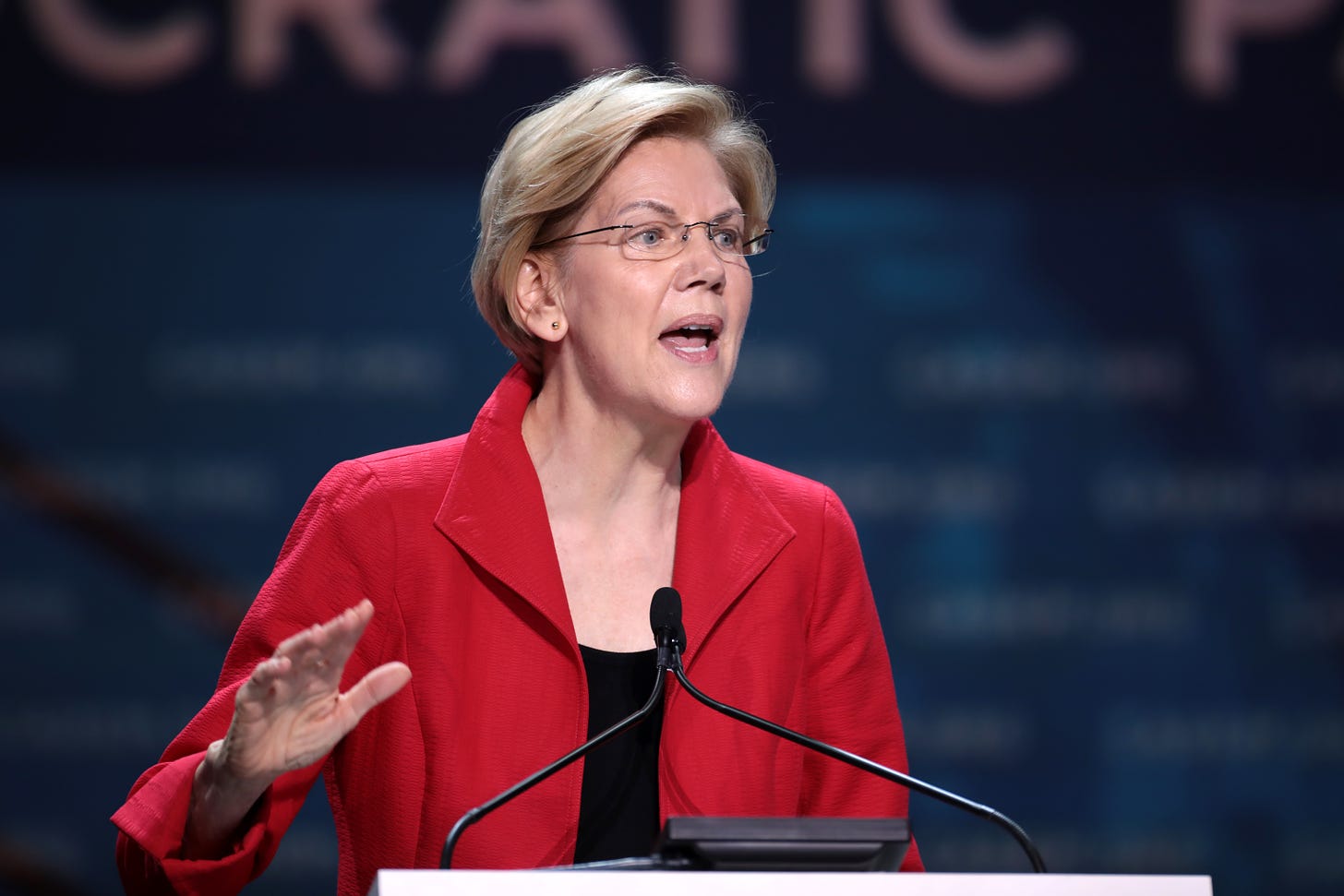
U.S. Senator Elizabeth Warren speaking with attendees at the 2019 California Democratic Party State Convention at the George R. Moscone Convention Center in San Francisco, California. (By Gage Skidmore)
Both in the EU and the US, the debate on how to deal with Big Tech is raging. Among big tech companies, the idea is still that
the engineers are the best people to oversee their most powerful creations (FT)
With the exception of Microsoft whose President in his recent book argues that government regulation of technology firms is needed, tech firms still think that regulation would stifle innovation and that they really know what they are doing. Every time Facebook’s CEO, Mark Zuckerberg, appears before a Congressional committee or gives a speech this image of the sector as a careful guardian gets a dent.
Elisabeth Warren, one of the two leading contenders for the Democratic nomination has been very outspoken about her plans to unwind “illegal and anticompetitive tech mergers”. This would mean for example disentangling Facebook and WhatsApp.
Reuters gives a good overview of where U.S. presidential candidates stand on breaking up Big Tech.
Summarized:
Trump
Trump has stopped short of calling for tech giants to be broken up, as Democratic Senators Elizabeth Warren and Bernie Sanders have, but said “obviously there is something going on in terms of monopoly,” when asked about major tech companies in a June interview with CNBC. […] The president’s eldest son, Donald Trump Jr. wrote an opinion piece for The Hill political website in September entitled “Free speech suppression online builds case to break up Big Tech.”
Joe Biden
has taken a more moderate stance than his progressive rivals on the issue of big tech company break-ups. In a May interview with the Associated Press, he said that splitting up companies such as Facebook was “something we should take a really hard look at” but that it was “premature” to make a final judgment.
Bernie Sanders
Sanders, a U.S. senator from Vermont who frequently criticizes corporate influence, has also called for the break-up of big tech companies such as Facebook and Amazon. His administration would “absolutely” try to split apart the companies, Sanders said at a Washington Post event in July.
Race for 5G
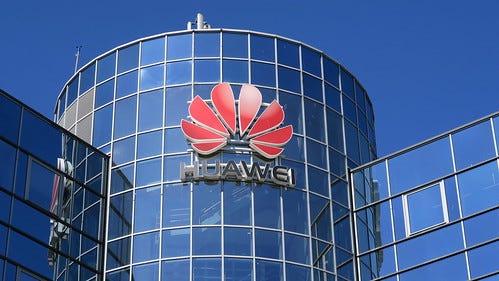
The US is preparing for a further crackdown on Chinese technology firm and 5G leader Huawei:
Telecom regulator: U.S. regulator to bar China's Huawei and ZTE from government subsidy program
President: Trump says U.S. will cooperate with 'like-minded' nations on 5G networks
Congress: Rules to stop China buying sophisticated U.S. tech should move faster: lawmaker
And Nokia is ramping up to be able to provide a non-Chinese alternative to Huawei:
Despite US pressure Huawei is not doing so badly. Both the UK and Hungary don’t seem to mind to roll out the carpet for the Chinese telecom giant:
Hungarian minister opens door to Huawei for 5G network rollout
Johnson set to grant Huawei access to UK’s 5G network — and open rift with Trump
Britain's ARM to continue supplying chip technology to Huawei
And the firm as a whole does not seem to do so badly either:
Huawei tightens China market hold with 42% share at expense of iPhones
Huawei will maintain robust growth in absence of U.S. supply
Strategy in turbulent times
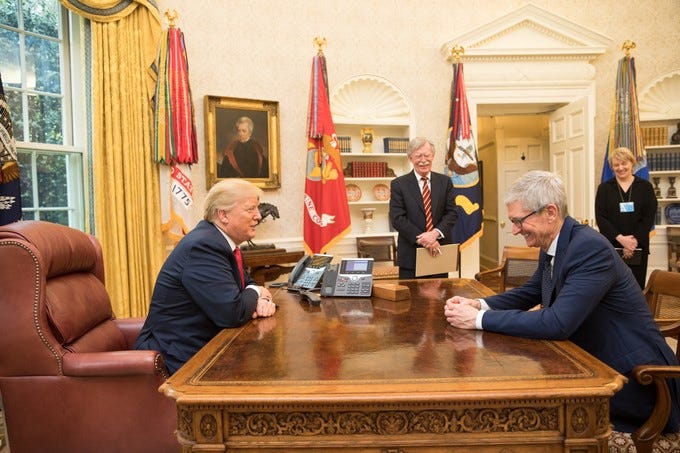
President Donald J. Trump and CEO of Apple Tim Cook in the Oval Office at the White House. April 25, 2018. (Official White House Photo)
While political disruption seems something that just happens, how firms deal with it is an important part of the equation. In this and earlier editions of the newsletter, we’ve discussed how Facebook’s CEO is very bad at it and shows that he has no clue how to deal with growing public concern over privacy, disinformation, monopolies.
Other firms are much better at this. Microsoft is at the forefront of pushing for regulation in the hope of being able to help develop it so that it wouldn’t stifle innovation. Of course, Microsoft has been where Facebook is now in the 90s and at the start of the century when it was embroiled in competition battles with the European Commission. But the firm has clearly learned its lessons.
Another firm that is showing good judgement is Apple. Especially its current CEO Tim Cook has been able to balance its interests in the US and China, avoiding to antagonize either the American or Chinese governments as Reuters reports and is using his relations to avoid new tariffs on Chinese-made watches, iPhone parts, AirPods.
But Apple has been in a relatively easy position as a hardware producer. Where other tech firms are banned in China or have to balance their market access interests in China with China’s censorship demands, Apple has been able to avoid these pitfalls until recently when it removed an app used by Hong Kong protesters on which police movements were identified, creating a small backlash over the world.
These problems could further exacerbate as Apple is transforming itself into a services company with Apple tv, gaming subscriptions and news services, which can become much more controversial in authoritarian regimes like China.
More tech news
Cyber
Microsoft says Russia-linked hackers target sports organizations
Exclusive: WhatsApp hacked to spy on top government officials at U.S. allies - sources
Security firm says Chinese hackers intercepted text messages
Beijing-linked group ‘hacks into foreign government text messages’
Cloud
Pentagon deal to boost Microsoft's position in cloud computing
France, Germany step up effort to build rivals to U.S. cloud firms
Fake news, censorship
Lithuanians are using software to fight back against fake news
Facebook, Google, Twitter urged to do more to combat fake news in EU
Facebook says it suspends accounts tied to Putin ally for meddling in Africa
Leaderless rebellion: how social media enables global protests
U.S. opens national security investigation into TikTok - sources
Facial recognition
ACLU sues government organizations over facial recognition software
An artificial intelligence company backed by Microsoft is helping Israel surveil Palestinians
AI race:
Fracturing internet:
Sanctions & Trade
Trade
China and the EU
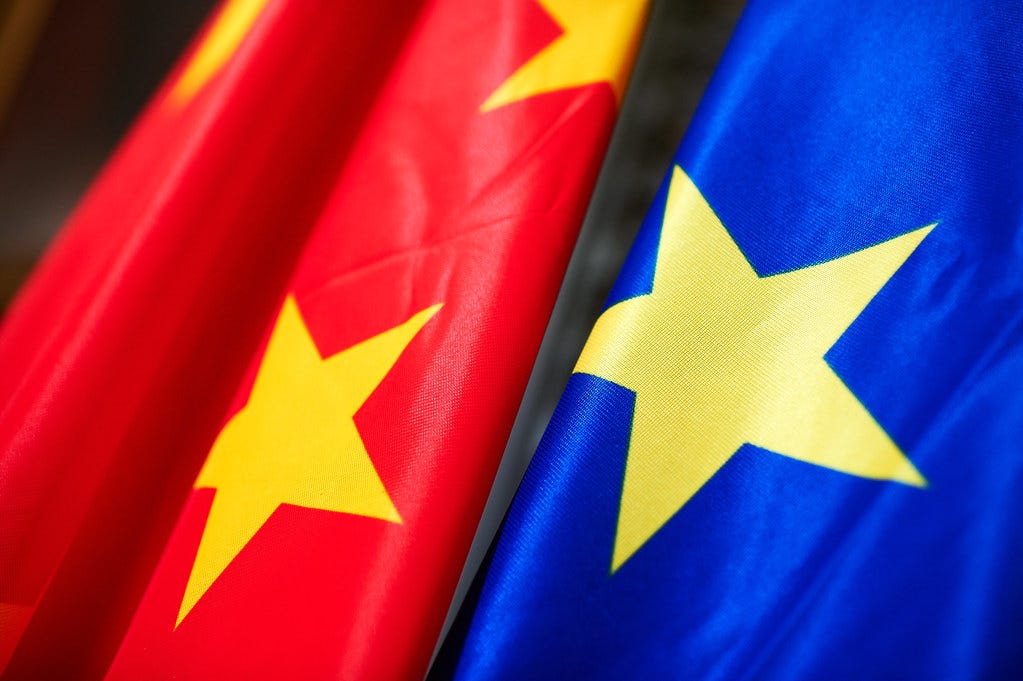
Trump has been reproached to have missed a golden opportunity to take on the Chinese together with the Europeans. But at this moment it seems that the Chinese also missed the opportunity to deepen their economic relationship with the European Union at a moment when Transatlantic relations are under strain. The EU and China have been negotiating a Comprehensive Agreement on Investment (CAI). When negotiations started in 2013 the EU still believed that the Chinese were in reform modus. But it quickly became clear that Xi Jinping would not give the market a more important role in the Economy and has even prioritised the role of state-owned enterprises. Now it seems the Europeans are getting fed up with the negotiations.
The EU Chamber in Beijing stated that
Brussels now faces a “Sputnik moment” in its relations with Beijing and should, if necessary, make its common market less open to Chinese investment in certain areas. (FT)
European businesses are increasingly feeling frustrated with the unequal playing field that European firms face in China at the same time that Chinese firms are much more free to do business in the EU. And they will push the Commission to close some markets for China in absence of reciprocality.
Trade war update
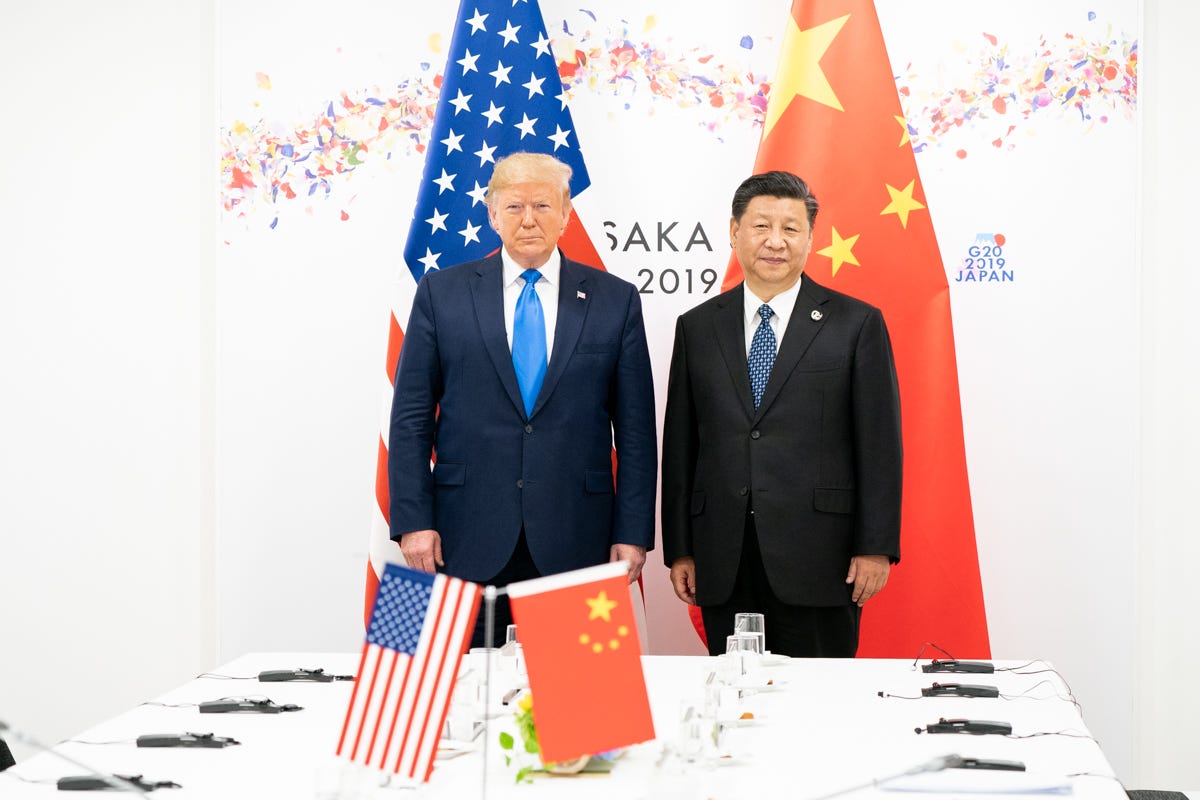
President Donald J. Trump joins Xi Jinping at the start of their bilateral meeting Saturday, June 29, 2019, at the G20 Japan Summit in Osaka, Japan. (Official White House Photo by Shealah Craighead)
There’s appearing some preliminary good news on the trade war front:
But the US and Chinese presidents are still looking for a nice location to sign their deal after Chile cancelled the APEC trade meeting it would be hosting as protests raged through the country.
Another complication for global trade is that China was cleared to impose $3.6bn in new tariffs on the US in a dispute over how the US calculates its anti-dumping duties. While the $3.6bn would only be a drop in the ocean of tariffs between the US and China, it would certainly re-escalate the trade war if China applied them.
But overall, as we argued a few weeks ago, a small truce will not be the end of this trade war.
And even little wizards are not immune from the trade war: Harry Potter publisher caught in US trade dispute with China


